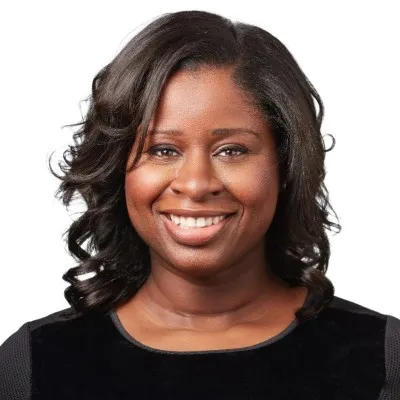How "Living the Culture" Influences Company Growth


While you don’t normally hear the words “nonprofit” and “tech” in the same sentence, working at a nonprofit tech organization is just another day in the office for Laura Bowden, VP of People at Tessitura Network. We recently had the chance to sit down with Laura on The BragWorthy Culture podcast and she explained how Tessitura got started and how, as an arts and culture-focused organization, they try to live their culture on and off the clock.
Unifying Systems
The Metropolitan Opera of New York was frustrated by the different software systems they were using that couldn’t share information. With nothing available in the marketplace or on the horizon, in 1995 its Board of Trustees authorized $5M to build a CRM tailored to an arts and cultural organization like the Metropolitan Opera. This CRM went live in the 1998 – 1999 season and was called Impresario.
This unified system was a game changer and allowed the Metropolitan Opera to enable connections with prospects, donors, members, single-ticket buyers, subscribers, etc. all in a unified system. This made it also a strong solution for ticketing, fundraising, marketing, data mining, and web capabilities.
The Word Spreads
The arts community is a small one, and before long other organizations were reaching out, wondering if they might get access to this game-changing software. Six other organizations, Santa Fe Opera, John F. Kennedy Center for the Performing Arts, San Francisco Symphony, Seattle Opera, New York City Center, and Lyric Opera of Chicago, met in 2001 and pledged to share costs around the development of the software to form a non-profit company. The new company would be called Tessitura.
User Owned and Governed
That same year, the leadership of Tessitura applied for 501(c)(3) charitable organization status, looking to create a business model that would function more like a co-op rather than as an asset for investors or shareholders. In 2003 Tessitura officially obtained the 501(c)(3) status from the IRS.
Today Tessitura works with more than 770 organizations in ten countries. While their software is robust enough for other use cases, they’ve chosen to focus exclusively on arts and cultural organizations as a rule.
Culture Alignment
Part of creating a user-owned and governed tech company for arts and cultural organizations is witnessing the fact that it isn’t any one person that brings together a performance or an exhibition but an entire team. And that team needs to truly believe in the mission.
In the case of Tessitura, Laura shares an amazing stat: 85 – 90% of their team either has an arts or cultural background or is artistic themselves. Bringing together these professionals from all over the world means that knowledge and thought leadership gets shared more rapidly internally, and then further down the value chain with stakeholders.
Living the Culture
Another part of that cultural alignment at Tessitura is living the culture, even when you’re off the clock. That means that team members are encouraged to get to arts and cultural events on their own and with their friends and families. That’s the kind of “always on” work environment that some people can really go for!
Challenges of Remote Work
Covid-19 caused a shift to remote work that has led a lot of companies to ask what best practices to utilize for globally distributed teams. These practices have been honed for almost 20 years at Tessitura and are used every day with their team members in 39 US states and 5 foreign countries. Laura shares three best practices:
- Over-communicate. With a company spread across 14 time zones, someone is always “on” while others may be asleep. Because it’s never a convenient time for the entire global team to meet, make sure that all meetings are recorded and also make sure that communication is crafted and inclusive to account for not being in-person with someone, in which your body language and tone of voice can complement your words.
- Socialize. Along with over-communicating, Laura stresses the importance of not having meetings be only about business. She allows for some buffer time in meetings to have a bit of social sharing to allow people to continue to get to know their colleagues better. She also has a monthly coffee check-in which is an agendaless chat. These practices make it “normal” for colleagues to see building relationships with each other as just as important as getting specific tasks done.
- Meet in person. You can’t replace the trust and connection built from in-person meetings. Make a point of using company funds to finance meetings for your team members to forge connections that will pay off when they’re back home and working virtually.

Embracing Different Perspectives
As you get to know your team members it will become obvious fairly quickly that while they might all share some common values and goals, there are some issues where there’s disagreement. Situations fostering disagreement are very much in the news these days as there is more and more pressure for companies to take particular stances on public issues.
Silence also speaks, Laura notes. While it doesn’t always make sense for an organization to take a public stance, by not saying something they have to realize they are also communicating a message. In those particular cases, she thinks it’s particularly important to provide anonymous forums for team members to air their views.
Without such opportunities, team members won’t feel that they can be their authentic, true selves at work, and Laura thinks that’s a big missed opportunity. Organizations should always strive to create engaging environments in which everyone feels valued and respected and safe in sharing their perspectives, even if they know some (or many) may disagree with those perspectives.
Check Out the Full Episode
Are you interested in learning more about Laura Bowden and Tessitura? Listen to the full interview by tuning into the podcast on Apple or Spotify.
Looking to build your own BragWorthy Culture? Fringe can help. Fringe is the number one lifestyle benefits marketplace. Give your people the power of choice and save a ton of administrative headaches by consolidating existing vendors and programs into a simple, automated platform. Talk to our team to get started.


